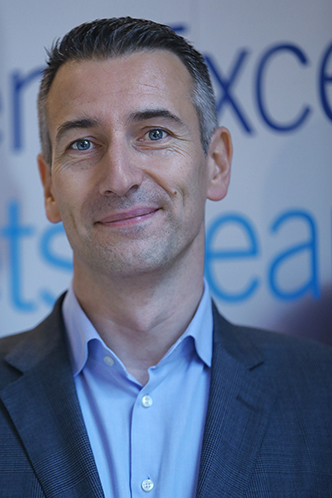DIGITAL BUSINESS
Luxembourg: key to Avaloq’s growth
Avaloq provides diverse technology-driven services to the global financial industry, but it wasn’t always this way.
September 19, 2017


Frédéric Kemp, managing director BeNeLux with Avaloq explained
Avaloq provides diverse technology-driven services to the global financial industry, but it wasn’t always this way. Its move to Luxembourg ten years ago played an important role. This contributed international experience as the firm enriched its banking systems organically, and expanded into 24 countries. Frédéric Kemp, managing director BeNeLux with Avaloq explained. – By Stephen Evans
“Since we established the office here just over ten years ago, the market has changed substantially, and so have we,” said Mr Kemp. Then Avaloq used to see themselves as a pure software provider to the Swiss private banking industry. They are now are a multi-faceted technology-driven financial services provider with global reach. As well as wealth managers, their modular solutions are tailored to the needs of retail banks, universal banks, transaction banks, and central banks.
More than private banking
“People in Luxembourg would probably say all our customers are private banks as all our customers do some private banking activities,” Mr Kemp commented. “But Swiss observers might think none of those customers are pure private banks because of their diverse scope of activities.” He cited customers such as the Banque de Luxembourg, which although it has a strong private banking activity, he sees as being on the universal banking spectrum. Nord LB in Luxembourg, on the other hand, he characterizes as mainly a wholesale bank.
Avaloq can do this because their software is integrated and modular. It offers a comprehensive suite of functionalities from accounting, to standard retail products such as current accounts, payments and credits for individuals and businesses, through to securities and complex derivatives, as well as fund administration tasks or custody. As well there are organisational functionalities such as customer relationship management. Avaloq are also helping banks’ open new digital access points to clients, facilitating a new range of online transactions and the flow of information.
Twin-tack growth strategy
“What makes us special is that we provide a comprehensive suite of functionalities that are both fully integrated but modular,” Mr Kemp explained. “Some banks only use our payments modules, some only use credits, and some, like a French tier-1-bank just want the CRM functionalities.” He points out that their solutions have all been developed in-house, thus guaranteeing data consistency. This contrasts with vendors which acquire and integrate independent solutions.
Their transformation as company took a twin-track. From principally offering systems for pure boutique private banks and local Swiss banks 15 years ago, they developed a fuller range of functionalities and services to be able to serve larger operations like HSBC, Deutsche Bank, Pictet, Barclays or Coutts. This expansion of functionality could only come with taking a broader geographical view, and this is why the move to the Grand Duchy was significant. “Luxembourg has been instrumental to the group’s international strategy as this was where we acquired our first non-swiss customers,” Mr Kemp explained. “We learned how to deal with foreign customers, markets and regulatory frameworks.” This internationalist approach is particularly essentially now that purchasing decisions on banking systems are generally taken at group level.
Most customers in Luxembourg have Avaloq installed and running in their premises, but there is also the option of software as a service, or full business process outsourcing. “Over the last three years, about 60% of new customers we’ve acquired have selected an outsourced solution,” said Mr Kemp.
Banks have gone through a tough period with low returns and more regulatory constraints, but there has been a fight back with costs being cut and new digital options being embraced. Avaloq are helping, with their open digital platform and Software Exchange program that brings together software developers, banks, researchers and more. “We see huge fintech innovation around nowadays, and we want to be a catalyst, helping banks and new ideas join efficiently. We are extremely excited about the next five years and beyond,” said Mr Kemp.